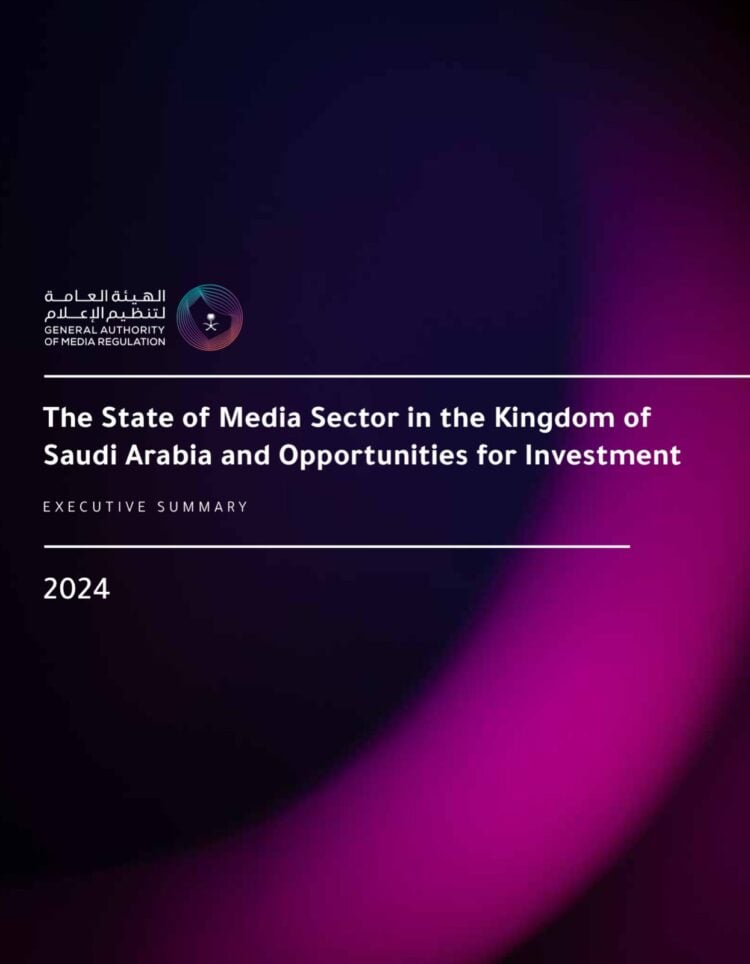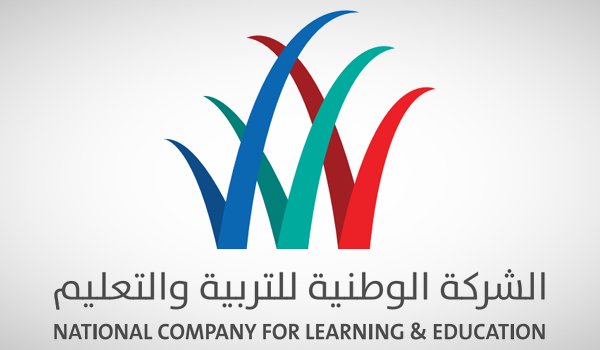Publisher: Maaal International Media Company
License: 465734
Saudi media sector is estimated to be worth $11 billion, 150,000 job opportunities by 2030
A recent report revealed that the size of the Saudi media sector is approximately $6 billion and is expected to reach approximately $11 billion by 2030, with a compound annual growth rate of more than 10% per year. This is in light of the initiatives and developments the sector has witnessed in recent years, in line with the transformations and changes the Kingdom is witnessing, stemming from the Kingdom’s Vision 2030. The media sector in the Kingdom has become one of the most prominent sectors in recent years, amid expectations of further growth, expansion, and investment attraction. According to a report issued by the General Authority for Media Regulation, titled “Status Report on the Media Sector in Saudi Arabia and Investment Opportunities,” the sector’s contribution to the gross domestic product (GDP) reached approximately $4 billion in 2023, representing approximately 4% of the sector’s GDP. This contribution is expected to double to $12 billion by 2030, at a compound annual growth rate (CAGR) of over 18%, and a 0.8% contribution to the GDP.
The report estimated the sector’s contribution to job opportunities at approximately 60,000 by the end of 2023, expected to rise to approximately 150,000 by 2030, at a CAGR of 14%.
The report highlighted six major transformations that will reshape the media sector in the Kingdom and open up prospects for further investment in the sector. These transformations are led by the shift in demand rates, the increase in demand rates witnessed in the Saudi market, and the preference for using digital channels, given the tremendous digital advancements the Kingdom has witnessed in recent years. The infrastructure transformation represented the second of the six transformations, as the Kingdom witnessed massive investments in developing modern studios, broadcast networks, and digital production platforms to meet international standards. Lifting the 35-year ban on cinemas in Saudi Arabia contributed significantly to the growth and development of the media sector. Furthermore, the Kingdom currently boasts more than 35 film studios, each with an area exceeding 300 square meters. These factors have contributed to the Kingdom becoming a regional center for media production, attracting international production companies to the Kingdom and raising the quality of media content.
اقرأ المزيد
The financial shift towards investment in the sector is one of the most important transformations, as Saudi media has proven its standing regionally and globally, which has bolstered confidence in providing financing programs and incentive packages that have enhanced investment attraction and promoted business localization. Through financial support and facilitation, companies are encouraged to relocate their operations to the Kingdom, contributing to strengthening the local economy, creating job opportunities, and developing national industries. The fourth transformation the sector has recently witnessed is the shift in supporting talent and competencies. This was reflected in the establishment of three media academies in the Kingdom, targeting the training of 4,000 individuals over two years. These academies offer multiple educational tracks covering 50 theoretical and practical subjects and specialized programs in partnership with leading international universities. The Saudi Media Academy, the Saudi Press Agency Academy for News Training, and the Saudi Broadcasting Corporation Academy for Training are vital centers for talent development and innovation in the media sector. The Saudi media sector has embraced technology as one of the transformations the Kingdom has witnessed in recent years. Technological advancements have had a significant impact on the Kingdom’s media sector. These technologies have facilitated seamless communication and highly efficient content delivery, enhancing innovation and development. The Kingdom has provided a fertile technical environment to keep pace with the best media products. 5G coverage has reached 78% of the Kingdom, and the average internet speed has reached 322 Mbps, 59% faster than the global average. The Kingdom has also worked to expand cloud computing solutions, with cloud computing licenses increasing by 40% in 2023. Artificial intelligence is expected to contribute $135 billion by 2030.
Finally, the regulatory transformation represented one of the major transformations the sector has witnessed. The General Authority for Media Regulation has provided a regulatory environment that ensures consumer protection and a competitive media market. The Authority’s regulations play an effective role in enhancing clarity, transparency, and ease of doing business for both media entities and local and foreign investors.
The report highlighted the five media sectors that comprise the sector: visual media, audio media, publishing, gaming, and advertising. The visual media sector in the Kingdom includes a mix of local and international players, such as Netflix and MBC Group’s Shahid platform. The visual media sector is the largest contributor to the media sector and is expected to grow from SAR 11.6 billion in 2024 to SAR 18.9 billion in 2030. This sector aims to enhance the development of infrastructure to create a comprehensive visual media production system.
It also includes the development of comprehensive educational programs and initiatives to empower individuals from all backgrounds and attract diverse talent from local and international communities. It also includes providing effective financial incentives and financing mechanisms to stimulate the sector’s growth and development, along with developing a robust system for displaying and distributing visual content across various platforms and strengthening partnerships with broadcasting networks.
The audio media market is expected to grow from SAR 972 million in 2024 to SAR 1.26 billion in 2030, driven by the expansion of music streaming platforms, live concerts, and changing consumption patterns. This sector focuses on strengthening the construction of a comprehensive audio media production system through strategic partnerships and infrastructure development.
It also includes developing comprehensive educational programs and initiatives to empower individuals from diverse cultures and attract local and global talent. The sector is working to provide strong financial incentives and financing mechanisms to stimulate its growth, in addition to implementing strict mechanisms to protect the intellectual property rights of its creators.
The publishing sector has witnessed an evolution from traditional publishing methods to electronic platforms, facilitated by the spread of electronic media and the increase in smartphone usage. This transformation enables educators to communicate more effectively with the public. The shift toward online advertising has also opened up new avenues for expansion and innovation, guiding companies and marketers to harness and benefit from the potential of online platforms.
The publishing sector is expected to grow from SAR 2 billion in 2024 to SAR 2.3 billion in 2030, driven by the expansion of digital content, Arabic translations, and the evolution of publishing models. The publishing sector seeks to leverage digital infrastructure and technologies to facilitate the production, distribution, and consumption of digital content. It also aims to promote the dissemination of diverse opinions and viewpoints, and highlight the diversity of Saudi culture and the richness of its heritage.
It also includes providing individuals from different cultures with basic skills, fostering a culture of continuous learning and talent development, and establishing partnerships and implementing exchange programs with international publishers, literary agents, and cultural institutions to promote broad intellectual exchange.
As for the gaming sector, the Kingdom has begun implementing an ambitious plan to build a vibrant and globally leading gaming and eSports sector. With the development of this sector, it is expected to grow from SAR 2.25 billion in 2024 to SAR 6.06 billion in 2030, at a compound annual growth rate (CAGR) of 18%. The gaming value chain spans the stages of game development, production, assembly, distribution, and monetization, strengthening the Kingdom’s position in all these stages. This sector focuses on establishing a regulatory and governance framework to coordinate the roles of public entities involved in gaming and e-sports.
The advertising sector in the Kingdom is witnessing remarkable growth, having evolved from using traditional methods to using electronic platforms, facilitated by the spread of electronic media and the increase in smartphone usage. The advertising market is expected to grow from SAR 8.1 billion in 2024 to SAR 13.8 billion in 2030, at a CAGR of 10%. The advertising value chain spans the stages of creative development, media planning, production, distribution, and monetization, with digital platforms playing an increasing role in allocating advertising budgets.









